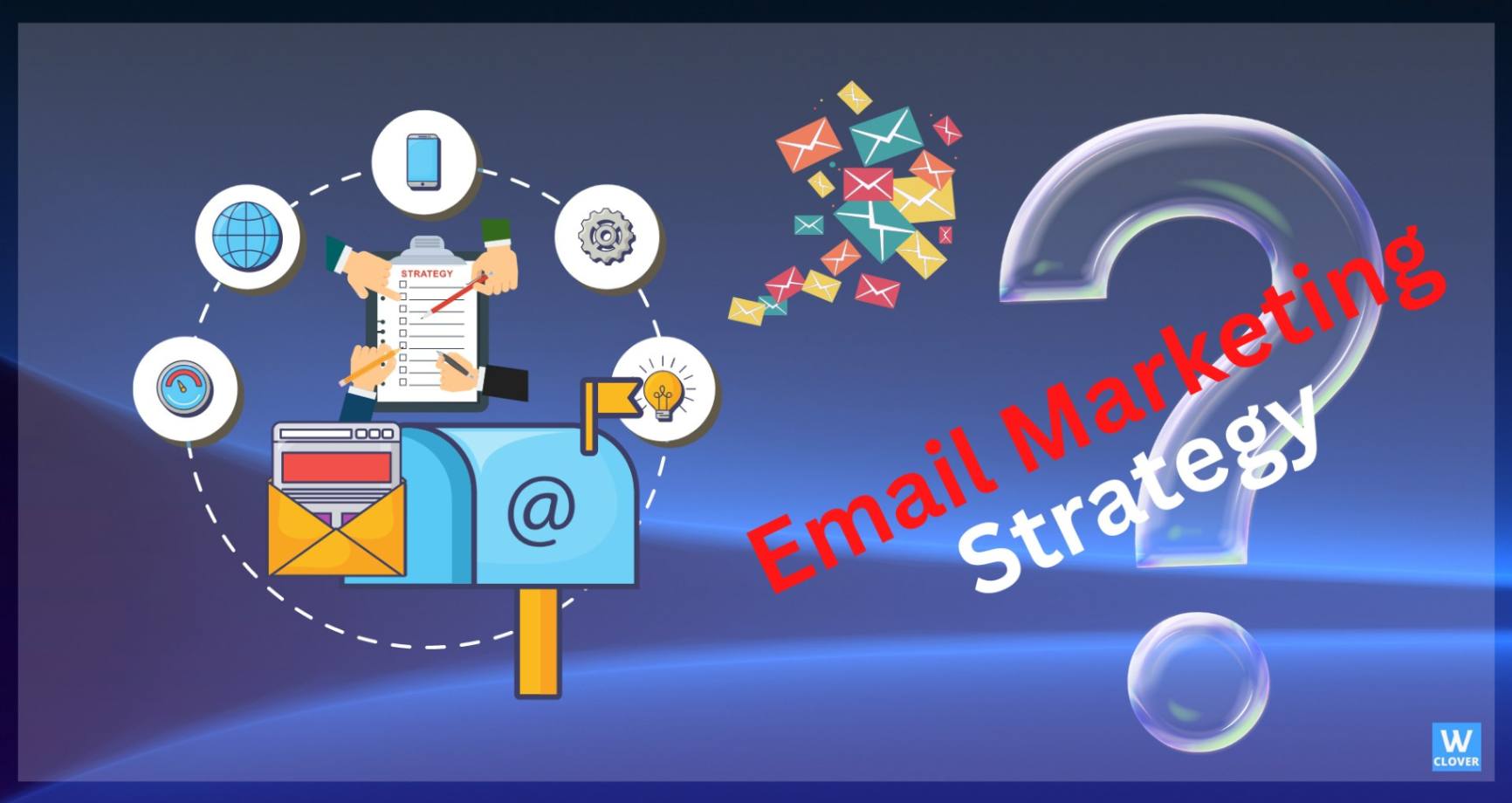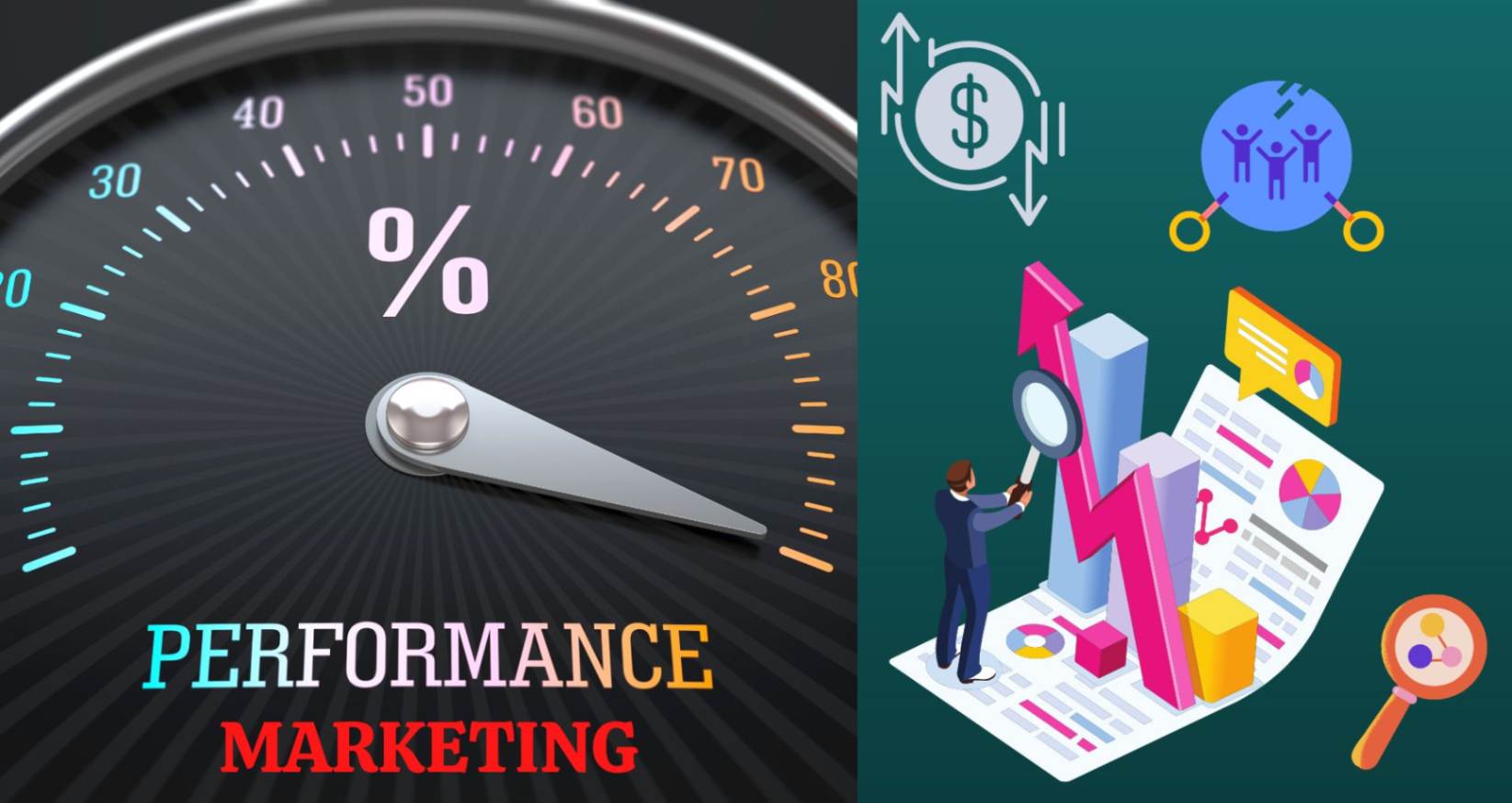This article will break down everything you need to know about the differences between performance marketing and digital marketing and discuss how these two marketing strategies can be used to benefit your business.
We'll also look at the advantages and disadvantages of each strategy, so you can decide which one is right for you.
Performance Marketing vs Digital Marketing
Two of the most common kinds of digital advertising are performance marketing and digital marketing.
On the one hand, performance marketing is a more direct sales approach to promoting eg. Native, google, FB, and push advertisements, etc.
While digital marketing places an emphasis on building a relationship of confidence and trust with the consumer before selling (eg. brand and blog websites, social media and email campaigns).
Digital marketing is like the umbrella of marketing, where for example affiliate marketing would be under the general term of digital marketing.
Businesses would do well to learn and implement both tactics in order to broaden the reach and impact of their marketing campaigns.
This article might contain referral links from our chosen partners, that may bring us a small commission at no additional cost to you. Please read our disclosure page for more details.
Two of the most common kinds of digital advertising are performance marketing and digital marketing.
On the one hand, performance marketing is a more direct sales approach to promoting (eg. Native, google, FB and push advertisements etc),
While digital marketing places an emphasis on building a relationship of confidence and trust with the consumer before selling (eg. brand and blog websites, social media and email campaigns).
Businesses would do well to learn and implement both tactics in order to broaden the reach and impact of their marketing campaigns.
In the ever-evolving world of digital marketing, it can be difficult to know which marketing strategies are best for your business.
Two of the main types of digital marketing are performance marketing and digital marketing, each with its own advantages.
Online performance marketing is a more direct form of advertising, while digital marketing is a broader approach that focuses on creating relationships with customers.
Both strategies are important for businesses to understand and utilize in order to maximize the reach and effectiveness of their campaigns.
What is performance marketing?
The term "performance marketing" describes an approach to online marketing in which brands only pay for advertising services when they see results (such as a click, a sale, or a lead).
It's a type of "performance-based marketing," to put it another way.
Marketers or advertisers work with agencies or publishers to create and place ads on performance marketing channels, such as social media, web content, native or google ads and a lot more.
These marketers skip the standard method of paying for ads and pay according to their ads' performance in terms of clicks, impressions, or purchases.
Hence, performance marketing is distinguished by the kind of payment model used, although it may use various marketing channels and approaches. (shopify article)
Benefits of Performance Marketing
- Improved outcomes in less time: When companies spend their marketing budget in a way that helps them reach their business objectives , as they do with performance marketing, they can get better results in less time.
- Real-time ROI measurements: Improved return on investment (ROI) is one of the most noticeable effects of Performance Marketing.
- Marketing via online channels: such as Google Ads and Facebook Ads and native advertising , helps boost consumer engagement, increasing conversions and discovering new, potentially valuable clients.
- Better brand reach: Performance marketing is an excellent approach for improving brand exposure since it allows businesses access to a bigger, more diversified audience than conventional advertising.
- Pay when getting results: In performance marketing models, companies often need to pay for a specific action (such as the completion of a purchase or lead) happens.
- For smaller businesses: with a limited marketing budget, this can make a huge difference.
- Improved KPI optimization: The only way to reach your business goals is to monitor your key performance indicators (KPIs) closely
- KPIs include the customer: retention turnover rate or the percentage of revenue from new customers, and performance marketing can help you achieve both goals.
What are the different types of Performance Marketing?
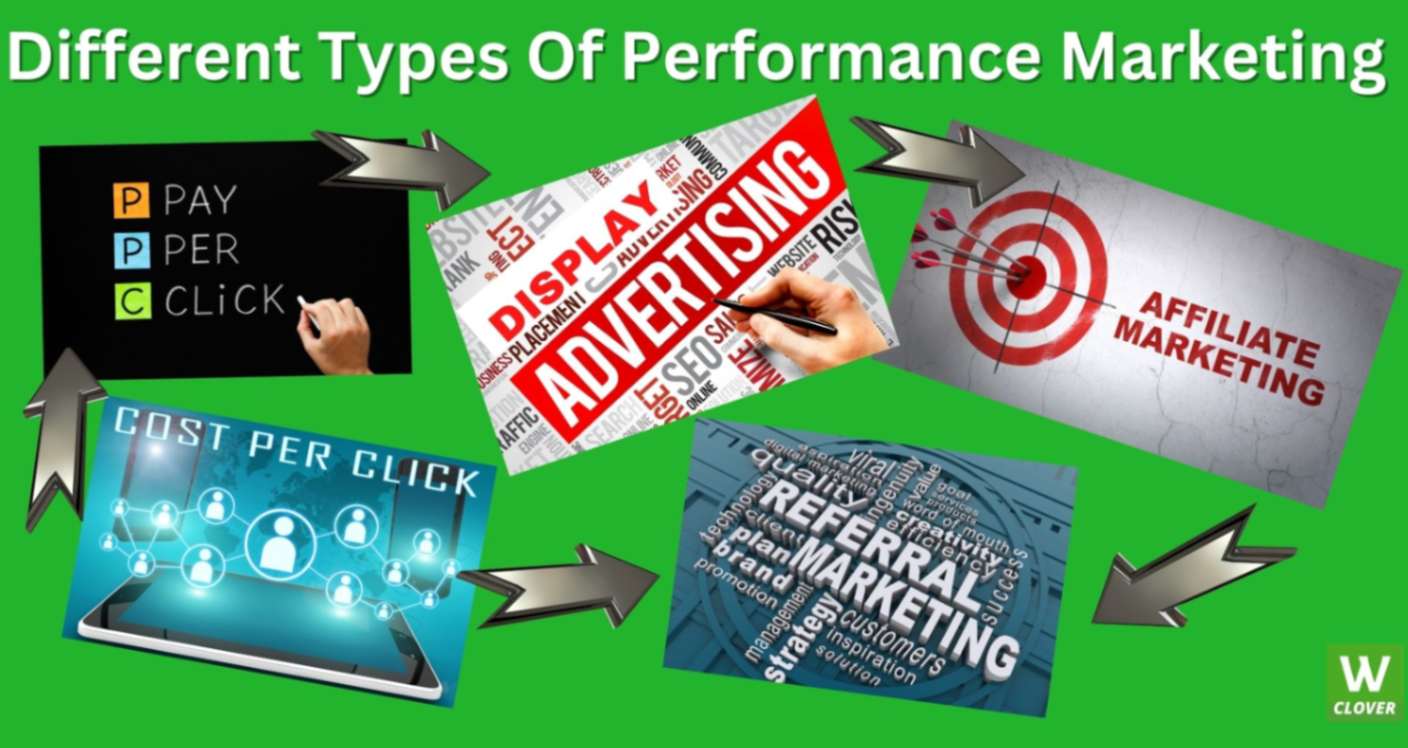
Here, we'll talk about the different strategies for running performance marketing campaigns, and how they can help your online business prosper.
Pay-Per-Click (PPC) Advertising
In this performance marketing campaign, the advertiser pays a fee every time someone clicks on one of their ads.
This enables businesses to target particular audiences and keywords, and they only pay when there are results, a typical type of ad for this would be native advertising.
Cost-Per-Acquisition (CPA) Campaigns
In a CPA campaign, advertisers pay a set fee each time a customer takes a specific action, such as making a purchase or visiting a website.
This allows advertisers to focus on generating high-quality leads and conversions.
Displaying Ads
Banner ads and other graphical forms of display advertising are great ways to reach your target audience where they already spend time online.
Most of the time, these ads have visuals, some descriptive text, and a link to a landing page meant to turn visitors into leads or customers.
Referral Marketing
In referral marketing, businesses offer discounts or other rewards to customers who tell their friends and family about the business.
This performance marketing strategy helps companies to acquire new customers and build brand awareness.
Affiliate Marketing
In affiliate marketing, a person is paid to bring new customers to a business' website.
Affiliates promote these products and services by putting links to them or banner ads on their sites, pages, or social media platforms.
Each click, lead, or sale from the affiliate's links or ads results in a commission payment to the affiliate.
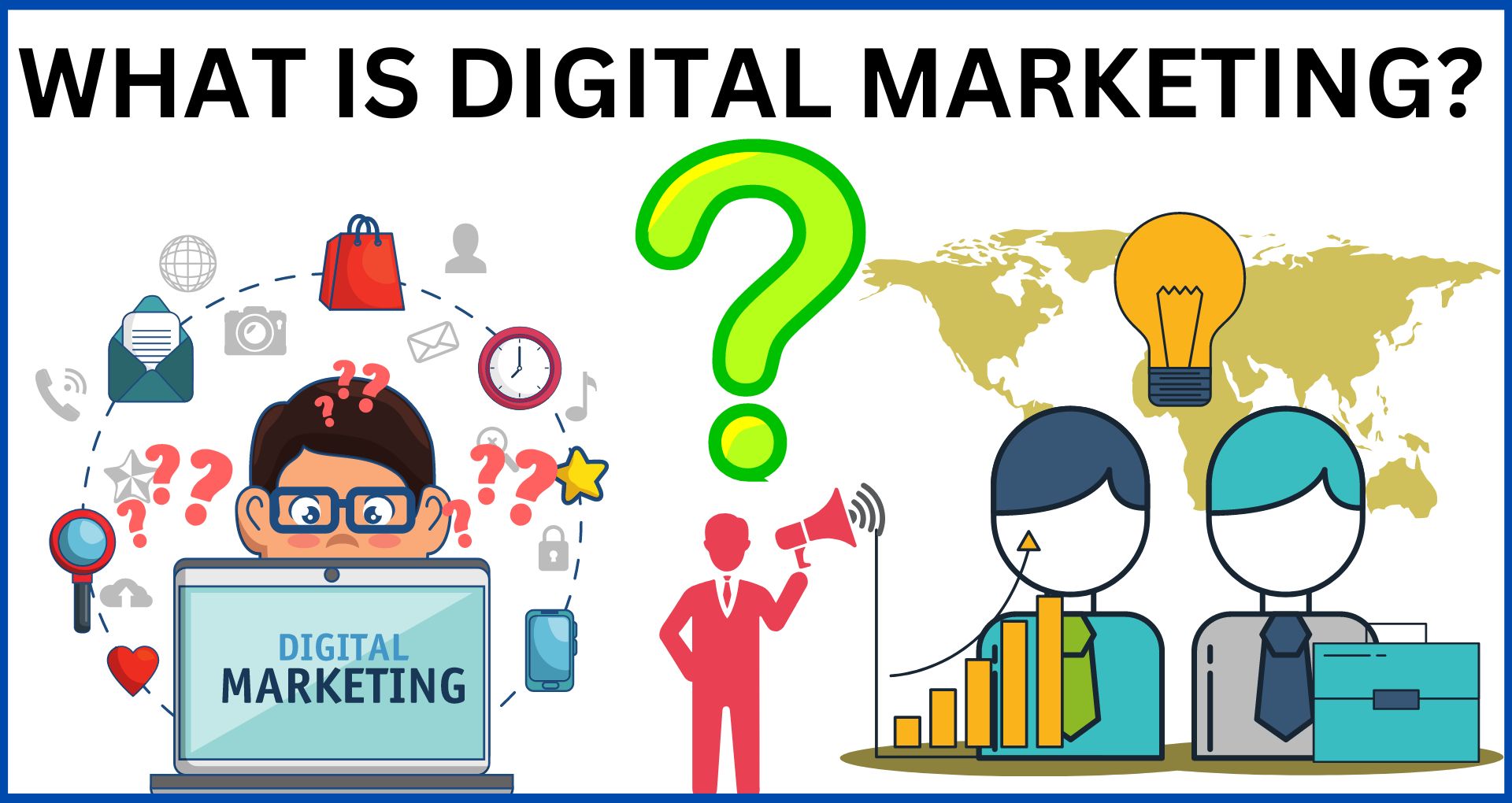
When we talk about "digital marketing," we're referring to promoting products and services to clients using various digital platforms.
Digital marketing includes attracting customers through email, content marketing, social media, brand marketing, and other methods.
It uses many of the same ideas as traditional marketing, but it is a new way for businesses to connect with customers and learn how they respond.
Hence, digital marketing strategies broadly incorporate many techniques, mediums, and payment models.
Benefits of Digital Marketing
Some of the key benefits of digital marketing include the following:
- Cost-effectiveness: Digital marketing is generally more cost effective than traditional marketing methods. This is because it allows businesses to reach a wider audience with a smaller budget.
- Increased visibility: Digital marketing helps businesses improve their online visibility, which can increase website traffic and sales.
- Better engagement: Digital marketing allows businesses to interact with their customers in real-time, which can help to build stronger relationships and increase customer loyalty.
- Improved targeting: With digital marketing, businesses can use data and analytics to understand their target audience and create personalized marketing campaigns more likely to resonate with them.
- Measurable results: Digital marketing allows businesses to track the success of their marketing campaigns and make data-driven decisions about their marketing strategy.
- This makes it easier, to identify what is and isn't working and adjust their strategy accordingly.
What are the different types of Digital marketing?
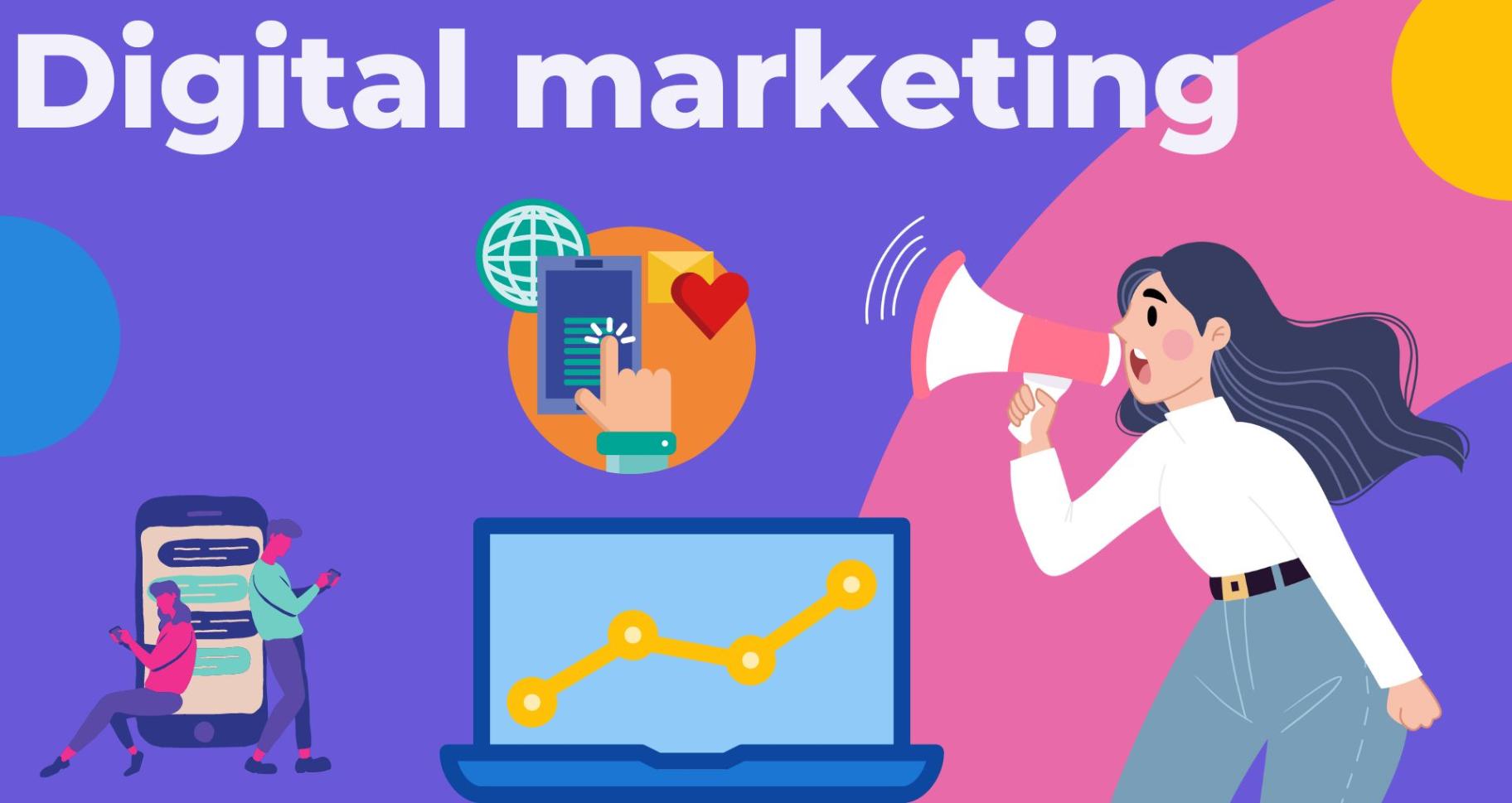
There are several types of digital marketing. We'll look at the different ways to market your business online and how they can help:
Social Media Marketing
This digital marketing strategy uses digital material shared on social networking platforms like Facebook, LinkedIn, and Instagram to increase exposure and click-through-rates (CTR).
Using different ad styles and targeting options, merchants can reach potential customers and track key performance indicators.
For instance engagement, click-through rate (CTR), cost per acquisition (CPA), and return on investment (ROI).
For social media marketing, there are many different ad sizes, prices, and ways to get them to people.
Advertising on social media platforms is similar to other forms of internet marketing in that it allows you to home into a specific demographic.
Paid promotion broadens your audience to include individuals who are non-followers.
Email Marketing
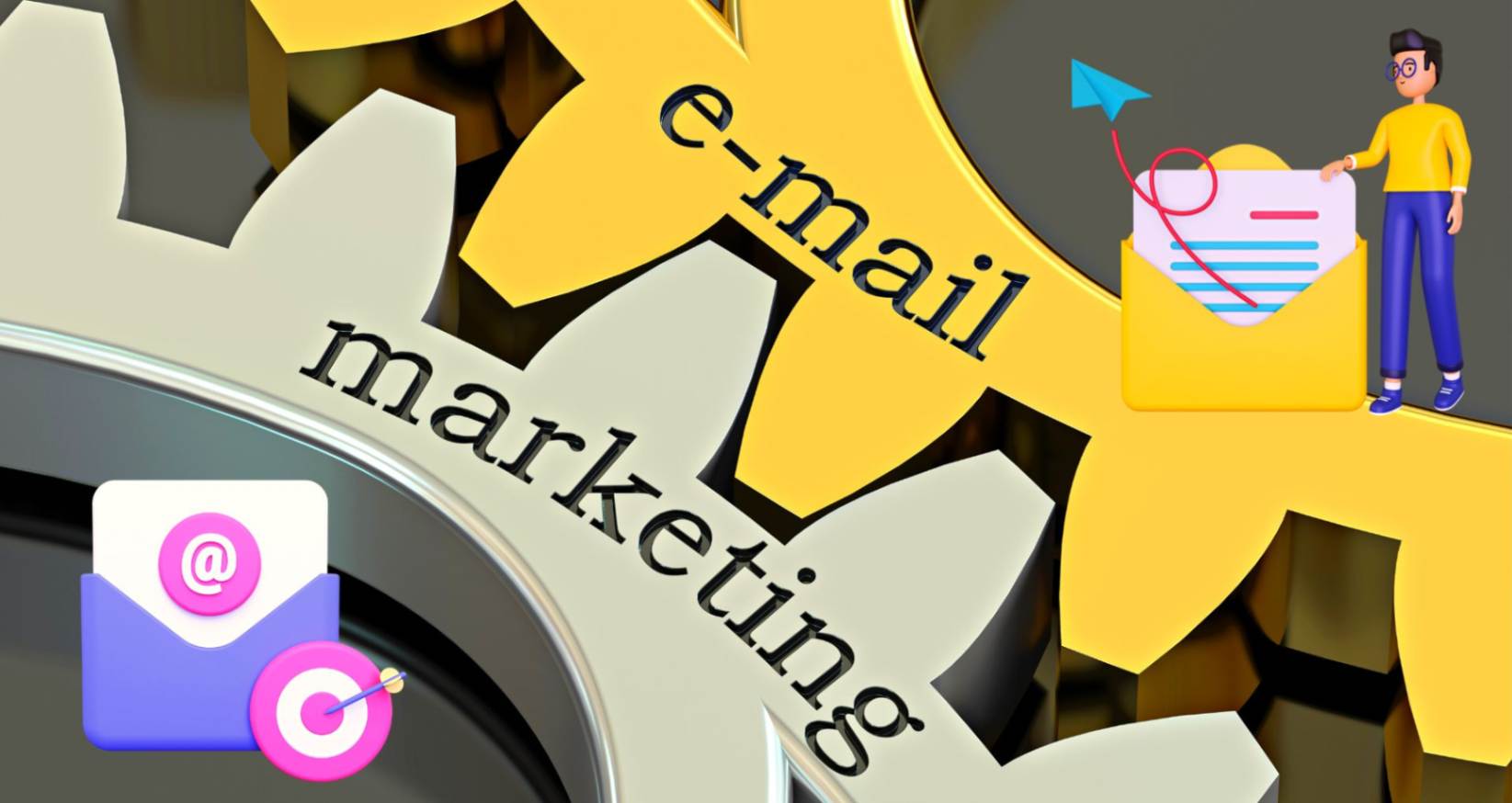
Email marketing is a way for businesses to find new customers by letting customers on their contact lists know about new products, offers, and news.
By using email marketing, you may let your consumers know about sales, promotions, and other offerings.
The goal is not only to make a complex sale but also to educate the audience on the value of your brand and keep them engaged.
Because it gives a high return on investment (ROI), it is an integral part of the inbound strategy for most businesses.
Search Engine Optimization
Search engine optimization (SEO) improves a company's visibility in Google's search results and attracts more customers who use the same method to find the company online.
SEO marketers use keyword research to see what people are typing into search engines to get what they're looking for, then incorporate those keywords into their content.
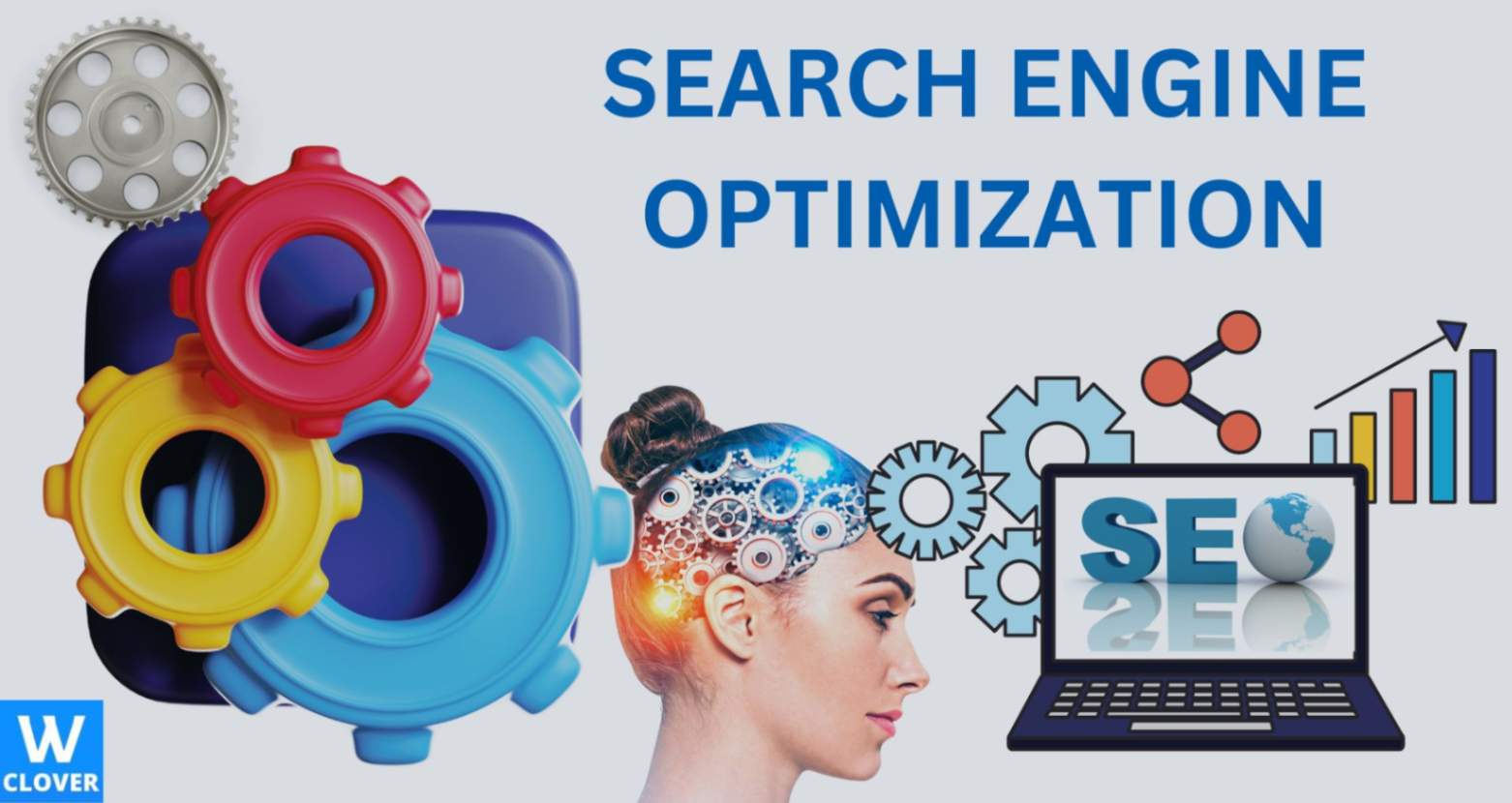
Its purpose is to increase your website's visibility in search engine results.
Keep in mind that a better ranking in search engine results means that more people will visit your website, increasing the likelihood that they will make a purchase.
Search Engine Marketing
SEM, or search engine marketing, is a kind of online advertising that aims to raise a site's rankings in the SERPs.
Today, most people in the industry use the word to talk about paid search advertising instead of organic search operations like search engine optimization (SEO).
Paid searches and pay-per-click (PPC) are other names for search engine marketing.
Search marketing works because it reaches customers when they are ready to learn something new.
SEM provides instantaneous updates.
It's one of the quickest ways to get people to visit your business site.
Content Marketing
The content marketing strategy uses blogs, podcasts, videos, and other media to attract, educate, and keep an audience's attention.
This method builds your company's credibility, makes your brand more well-known, and ensures that your company is the first thing that comes to mind when a potential customer needs your products or services.
Using content marketing efforts regularly helps you connect with and build loyal customers.
Customers are more inclined to choose your company when they see it as a helpful resource.
Affiliate Marketing
Affiliate marketing, which uses the growing influence of industry experts, is something we've already talked about in the performance marketing section.
With the help of these outside opinion leaders, your company will work together to advertise its wares in exchange for some commission.
The postings, blogs, and videos of each person will bring in new leads and sales for each company.
Performance Marketing vs Digital Marketing – Key Differences

•Performance marketing is a type of digital advertising that uses analytics and data to reach certain business goals.
•Digital marketing, on the other hand, is a broader term for advertising and promoting products using digital platforms and technology.
•Here are a few of the more noticeable differences:
•Performance marketing focuses on measurable results and returns on investment, while digital marketing focuses on using digital channels and technologies to promote and advertise products or services.
•Performance marketing often uses specific tactics, such as pay-per-click advertising and cost-per-acquisition campaigns.
•Digital marketing, on the other hand, can include a wide range of marketing strategies, such as SEO, social media, and content marketing.
•Performance marketing is typically focused on short-term goals.
•It is highly data-driven, while digital marketing is more concerned with building long-term customer relationships and creating engaging content and experiences.
•Performance marketing often focuses on direct response and conversion, while digital marketing focuses on brand awareness and building customer loyalty.
Performance Marketing vs Digital Marketing – Which One is Better?
The answer to this question is entirely black and white.
What kind of digital marketing or performance marketing is best for your company depends on several things.
It would be best to analyze the two models' costs to determine which is more beneficial for your company.
When looking at the big picture, digital marketing is the best option for organizations since it is more cost-effective, versatile, and adaptable.
But for companies that want to test the waters of a new market and are ready to spend for results, performance marketing might be a viable choice.
Performance Marketing vs Digital Marketing - Is it Necessary to Invest in Both?
Your professional objectives will dictate the correct response to this question.
If you want to increase brand awareness, investing in digital marketing is the most effective way to do so.
Performance marketing is the way to go if you want to focus on results and are ready to spend more on paid advertising for them.
Hence, combining the best features of the two methods and investing in both might be the best way to advertise.
Final Thoughts

The significant difference between digital marketing and performance marketing is the focus on specific customer actions.
Performance marketing is more focused on specific actions and results- (eg. paying for ads to make a direct profit)
However digital marketing, which is a more general umbrella of terms that can cover a lot of different strategies and tactics, for example-affiliate marketing could be under the "umbrella" of digital marketing.
It is difficult to say whether performance marketing or digital marketing is better, as the right approach depends on a business's specific needs and goals.
"Hey, do you want to speak fluent affiliate?
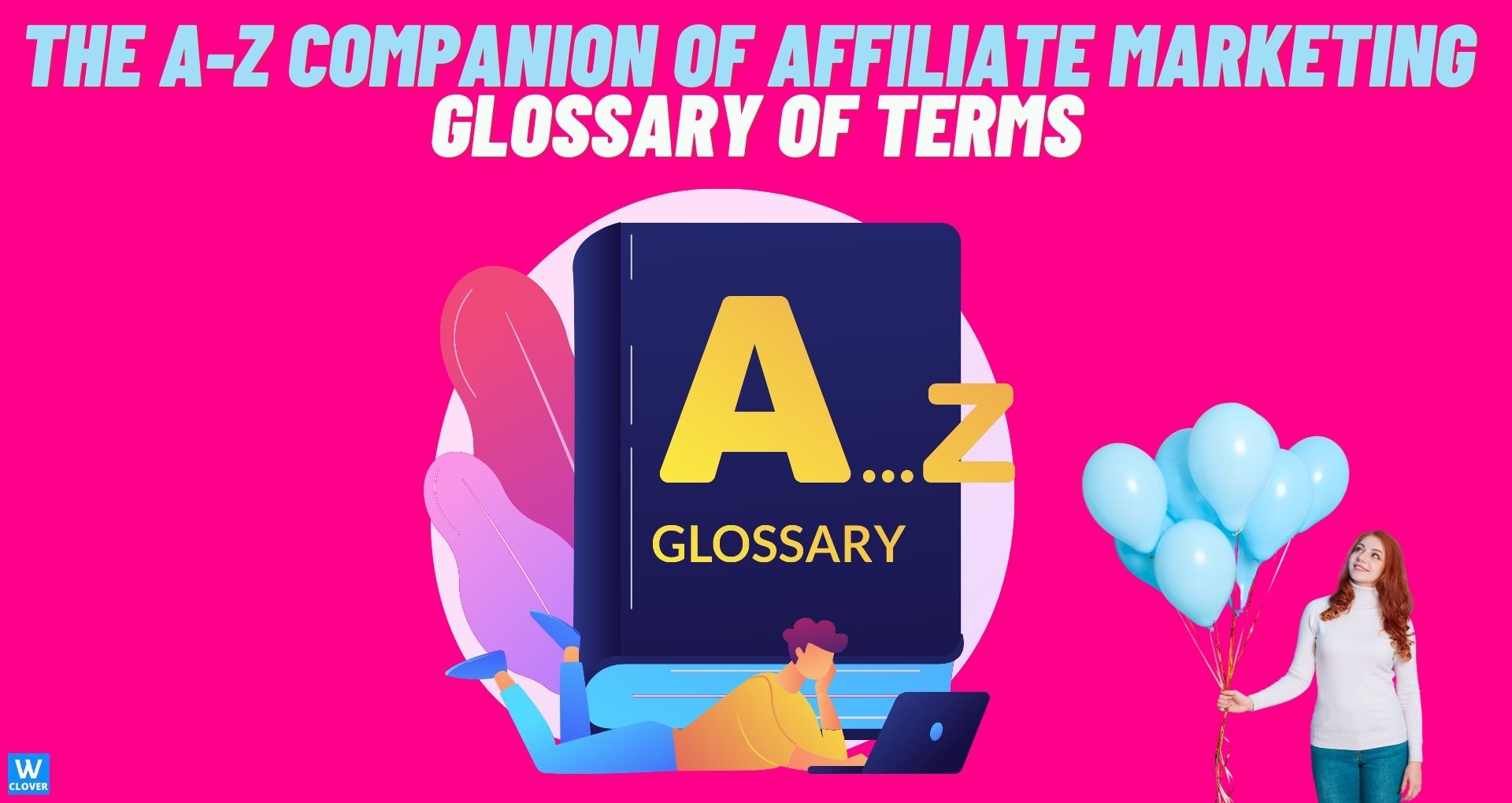
Our A-Z Companion Of Affiliate Glossary Of Terms is the ultimate compass that you never knew you needed. Don't get lost in translation - bookmark it now."
SUGGESTED ARTICLES
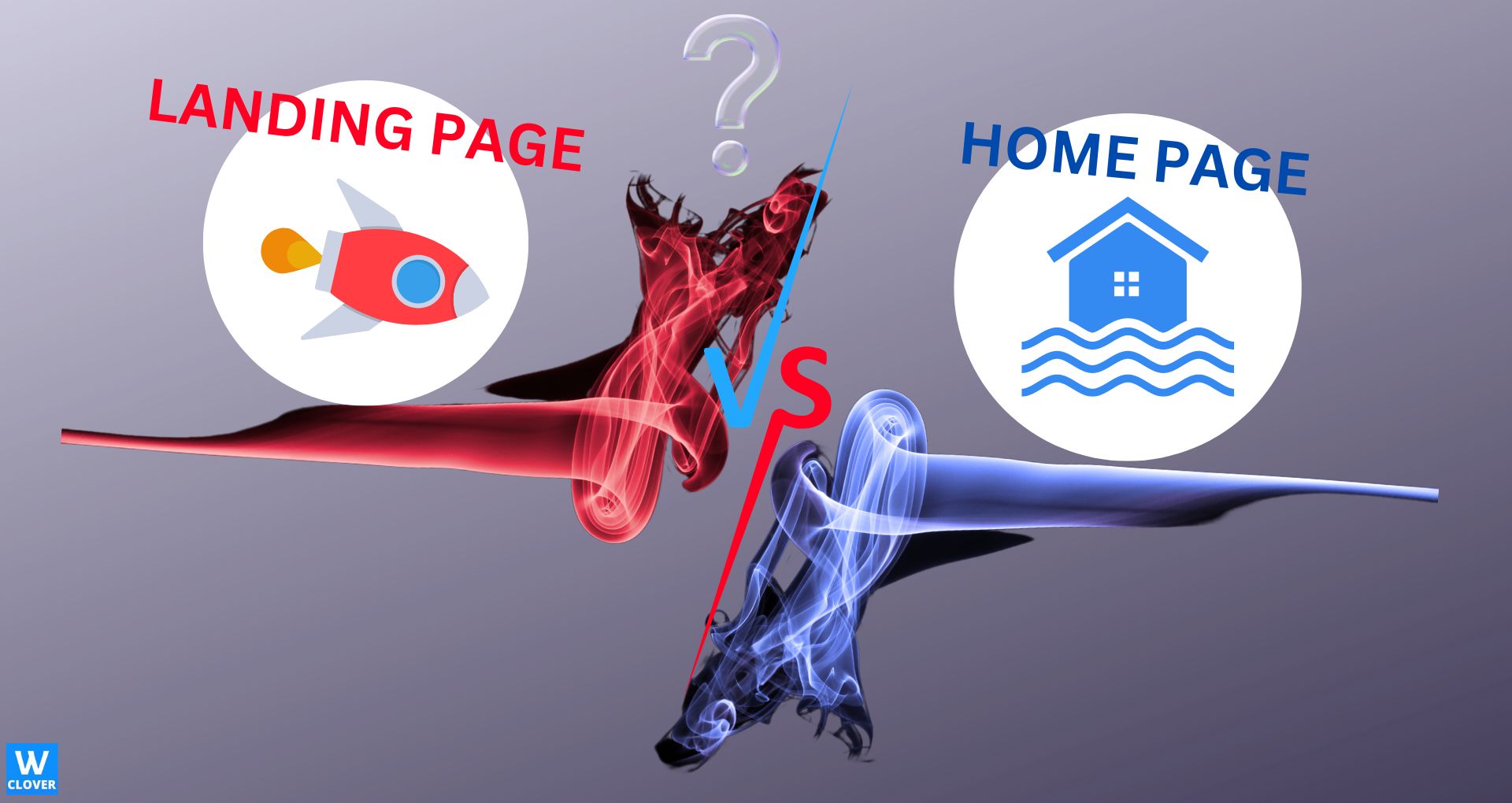
Landing Page Vs Home Page: 7 Major Differences [2023]
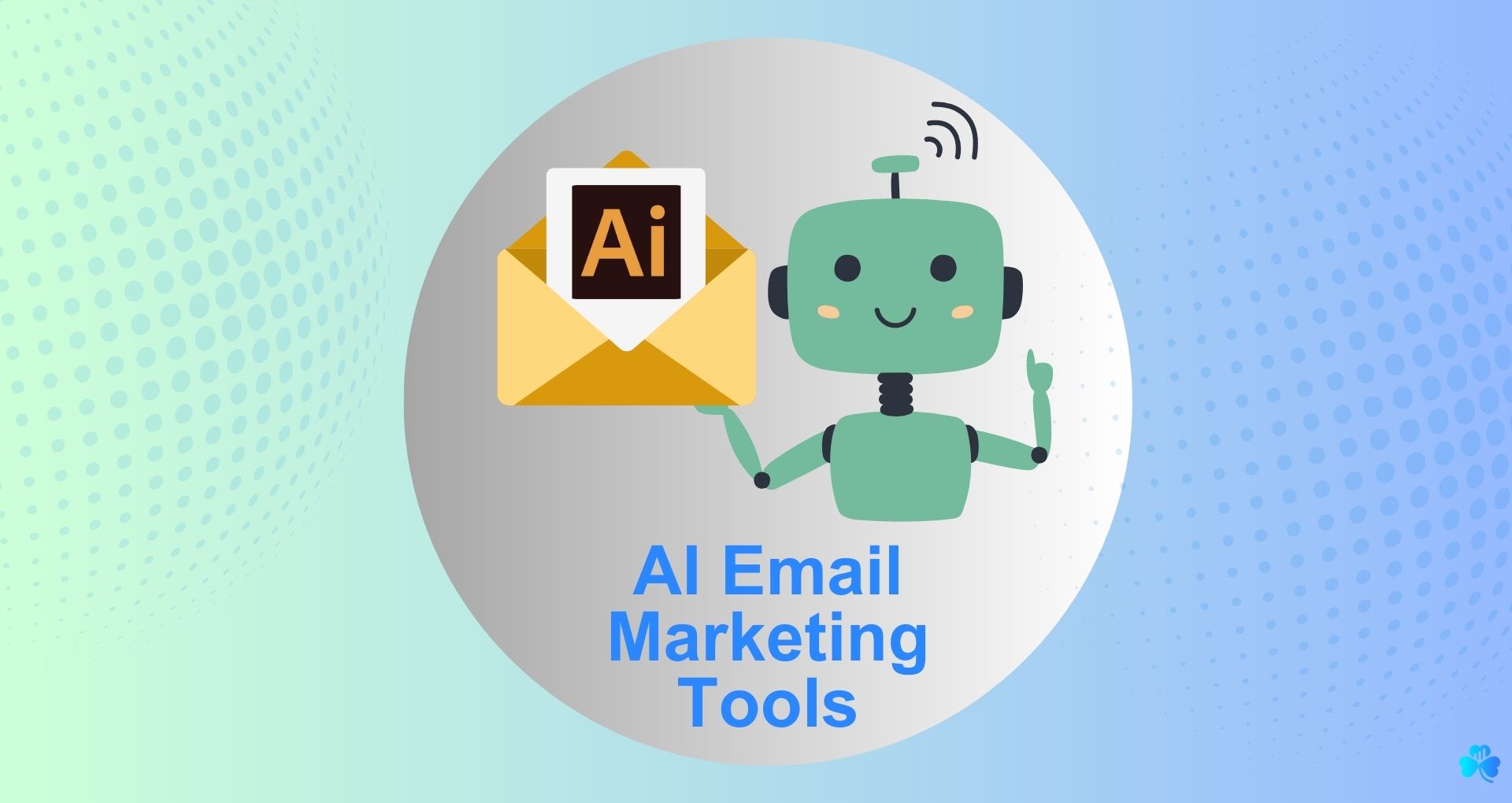
Best 15 AI Email Marketing Tools: Your Competitive Edge [2023]
